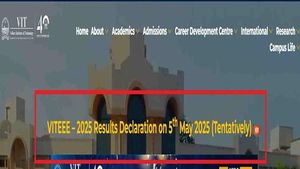India and Italy have officially signed a new scientific cooperation agreement aimed at enhancing collaboration in key areas such as quantum technology, artificial intelligence, and biotechnology. This agreement, formalized on April 21, 2025, during a high-level meeting in New Delhi, marks another significant step in the growing partnership between the two nations.
The meeting featured Italy’s Minister of University and Research, Anna Maria Bernini, and India’s Minister of State for Science and Technology, Jitendra Singh. It was part of a broader framework known as the Joint Strategic Action Plan 2025–2029, which was initially outlined by Indian Prime Minister Narendra Modi and Italian Prime Minister Giorgia Meloni during discussions at the G20 Summit held in Brazil.
As part of the new agreement, both countries will implement the 2025–2027 Executive Programme of Cooperation (EPOC) for Scientific and Technological Collaboration. This initiative aims to support at least ten joint mobility research projects and ten significant collaborative research efforts. The joint statement released after the meeting emphasized the importance of these projects, which will span various sectors including big data, artificial intelligence, and biotechnology.
Notably, this agreement builds on a legacy of over 150 previous joint scientific projects between India and Italy, showcasing a commitment to expanding their research endeavors. The two governments reiterated that scientific and technological collaboration is a core pillar of the broader India-Italy relationship.
During the meeting, Singh highlighted India’s recent technological advancements, including the development of the world’s first DNA-based COVID-19 vaccine and the launch of a homegrown HPV vaccine. He also mentioned the rollout of Nafithromycin, an Indian antibiotic designed to treat respiratory infections, along with India’s first successful gene therapy trial and the establishment of a national genome data bank.
Singh pointed out that India’s strategic investments and policies are steering the nation toward becoming a global hub for emerging technologies. He stated, "Our innovation strategy includes preserving ancient knowledge through digital tools," referencing the Traditional Knowledge Digital Library (TKDL), which documents traditional Indian medicine and practices in a searchable format.
In addition to these highlights, Singh discussed initiatives in agriculture and health-related technologies, such as India’s Aroma Mission, which promotes the production of aromatic crops. He noted the success of tech-enabled schemes like the Soil Health Card and Swamitva Yojana, which utilize drones and GIS tools to transform Indian agriculture.
Furthermore, the discussions touched upon India’s ambitions in ocean exploration. Singh updated the Italian delegation on the Deep Ocean Mission, which plans to send a submersible 6,000 meters below sea level, with a test dive scheduled for 2026.
The joint statement reaffirmed both countries' commitment to working together in quantum technologies and advanced scientific applications. This partnership is expected to foster further academic and industry linkages, enhancing the global competitiveness of both nations.
Senior officials from India, including Dr. Rajesh Gokhale, Secretary of the Department of Biotechnology, and Prof. Abhay Karandikar, Secretary of the Department of Science and Technology, also participated in the meeting. They emphasized the importance of supporting startups and small businesses engaged in scientific innovation, opening new opportunities for collaboration between researchers, institutions, and entrepreneurs across India and Italy.
In a related development, the Italian Space Agency (ASI) recently marked a historic occasion with the official inauguration of the African Space Agency on April 20, 2025. The Director General of ASI represented the agency at this significant event, emphasizing Italy’s long-standing partnership with African nations in the field of space exploration.
During the inauguration, the Director General remarked, "It is a great honour and a deep emotion to represent the Italian Space Agency today on this historic day that marks the official inauguration of the African Space Agency, which represents not only a step forward for Africa in the panorama of space exploration, but also a clear signal of the ambition, vision and ability of the African continent to be a protagonist in the great challenges of our time."
The strong bond between Italy and Africa in the space sector was highlighted, tracing back to the 1960s when Luigi Broglio established a base in Malindi, Kenya. This base has served as a bridge between Europe and Africa for decades, contributing to shared growth and knowledge advancement in the region.
The Italian commitment to the African Space Agency is part of the Mattei Plan for Africa, a strategic initiative aimed at fostering fair and sustainable partnerships with African countries. Recently, the Italian Space Agency has initiated dialogues with twenty-two African nations, with meetings held in Rome and Milan to discuss collaborative efforts.
"Within the Mattei Plan, the Italian Space Agency is collaborating with 22 African countries to define a series of joint initiatives in the field of training and capacity building, with the aim of promoting local skills and strengthening national capabilities in the space sector," the Director General explained during the ceremony.
He concluded his remarks by expressing hope that the creation of the African Space Agency would serve as a driver of opportunities and innovation for the entire continent, reaffirming Italy’s role as a reliable partner ready to continue its fruitful collaboration with Africa.
As both India and Italy expand their scientific partnerships and embrace emerging technologies, their collaborations are poised to create a significant impact on global innovation and development in the years to come.





